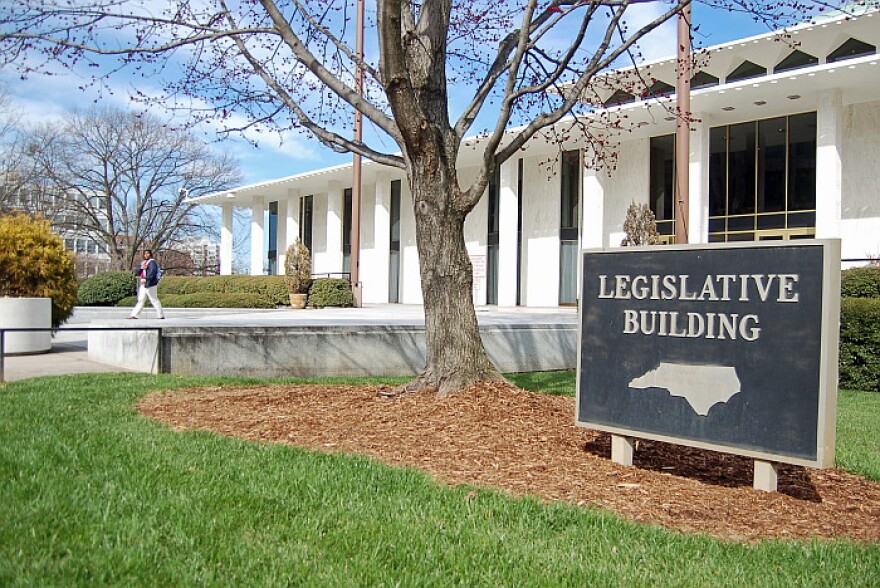The North Carolina General Assembly is two months late on finalizing a two-year budget, even as the state expects to take in billions of dollars more than it had earlier forecast.
Getting the state government's spending plan enacted depends first on disentangling competing House and Senate proposals. The unexpected billions in tax collections, as well as unallocated COVID-19 stimulus money, have only made the process more difficult.
“It is a much more complex budget this time,” Rep. Donny Lambeth, a Forsyth County Republican and a senior House Appropriations Committee co-chairman, said this week.
Once Republican leaders have agreed to a joint plan, they'll aim to reach a compromise with Democratic Gov. Roy Cooper that he’s able to sign into law.
But Cooper has never signed a traditional omnibus state budget bill into law — a reflection of the political parries between him and the GOP-controlled General Assembly since he was sworn in to office in 2017. As has happened before, there will likely be significant differences between Cooper and the GOP-controlled legislature over tax cuts, teacher and state employee pay and policy provisions that would weaken executive branch leaders.
A new budget was supposed to be in place by July 1. The governor's office said this week that Republicans were needlessly slowing the process by debating a bill to weaken his emergency powers.
But Cooper tempered his critique to reporters, sounding optimistic that a final budget he could sign was still quite possible.
“We need to take whatever time we need to make the transformational changes that are going to be so important to this state,” Cooper said Thursday. "Yes, it’s a little more complicated. And we all have to come to an agreement on how this is going to work.”
There are enough Democrats in each chamber to uphold a Cooper budget veto if party members remain united. That happened in 2019, causing a budget stalemate with Republicans that never got fully resolved. But with several Democrats already voting earlier this year for preliminary versions of the budget, there's no guarantee a veto would stand this time.
House and Senate Republican leaders took until early June to agree on spending caps for state funds — $25.7 billion this year and $26.7 billion for next year.
And with income tax deadlines delayed due to COVID-19, legislators didn't learn until mid-June the state would take in . And that's on top of $5.4 billion in federal funds earmarked for North Carolina in the federal COVID-19 aid package.
“We have an unprecedented amount of resources here,” Cooper said.
, and t There was no threat of a state government shutdown because state law directs government to keep operating.
But the budget overtime delays projects and pay raises. While the House, Senate and Cooper all agree federal COVID-19 money should be spent on high-speed internet access and water and wastewater system projects, for example, that money can't be spent until there's an enacted law.
Legislators had made some progress by the week’s end.
House Speaker Tim Moore and Senate leader Phil Berger resolved their remaining differences on top-level issues, Lambeth said Friday. He didn't have details, but said Thursday's agreement enables rank-and-file negotiators to begin meeting next week.
Berger and Moore had no immediate comment on Friday. Earlier in the week, Berger said a possible agreement with the governor was likely weeks away: “I don’t see us getting to the finish line before the end of September.”






